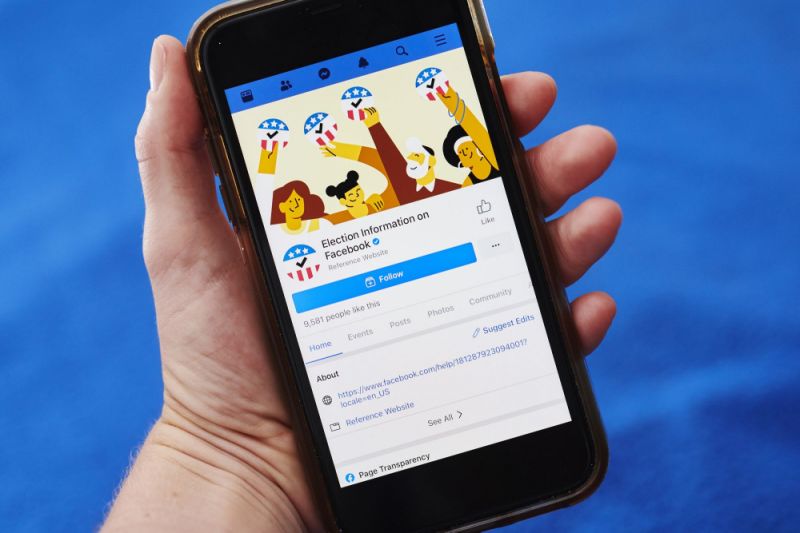
(Bloomberg) — Facebook Inc. launched a voting information hub to give users election information, including links to register to vote or volunteer at a local polling station.
The hub, which Chief Executive Officer Mark Zuckerberg first announced in June, will be promoted atop U.S. users’ Facebook and Instagram feeds later this fall. The company expects it will reach 160 million Americans before November’s presidential election, according to Emily Dalton Smith, Facebook’s director of social impact. Facebook will compile information for the site from state officials and groups like the Bipartisan Policy Center and the Federal Voting Assistance Program.
The idea came after Facebook saw value in a similar tool it created to promote accurate information about Covid-19, Dalton Smith said. Facebook has said it’s made protecting the integrity of the 2020 U.S. election its top priority, but the social network is often used to spread misleading information about voting and other election-related topics. Facebook started labeling all posts related to voting last month and those tags will drive users to the election hub. Facebook has publicly touted a goal to help register 4 million people to vote.
The company will also use the hub to share election-day results, Dalton Smith said. But it is already preparing for a scenario in which returns aren’t available immediately given the expectation that many people will vote by mail. Facebook is still finalizing those plans, including which sources it will use for voting results, Dalton Smith said. “It’s a pretty dynamic election season so we’re working on our plans for election night as we speak,” she added.
Alphabet Inc.’s Google also announced an initiative on Thursday to distribute accurate voting information and fight efforts to mislead voters about the electoral process. People looking for voting information on Google search will see a special information box with state-by-state information, gathered from local authorities and non-profit groups.
Google also said it will remove any videos from YouTube that contain information that was obtained through hacking and which might interfere with the election or census. In the 2016 election, Wikileaks released thousands of pages of emails from Hillary Clinton’s campaign chair, leading to widespread coverage and sparking new conspiracy theories that still circulate today.
Twitter Inc. said on Wednesday that it’s also planning new features and policies that will prioritize accurate voting information as the election draws near.
(Updates with Twitter plans in final paragraph. An earlier version of this story corrected the date Zuckerberg first announced the product.)
<p class="canvas-atom canvas-text Mb(1.0em) Mb(0)–sm Mt(0.8em)–sm" type="text" content="For more articles like this, please visit us at bloomberg.com” data-reactid=”31″>For more articles like this, please visit us at bloomberg.com
<p class="canvas-atom canvas-text Mb(1.0em) Mb(0)–sm Mt(0.8em)–sm" type="text" content="Subscribe now to stay ahead with the most trusted business news source.” data-reactid=”32″>Subscribe now to stay ahead with the most trusted business news source.
©2020 Bloomberg L.P.












